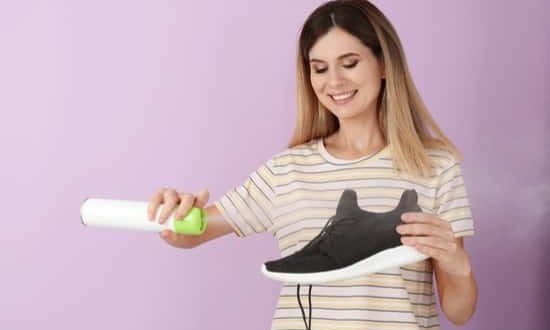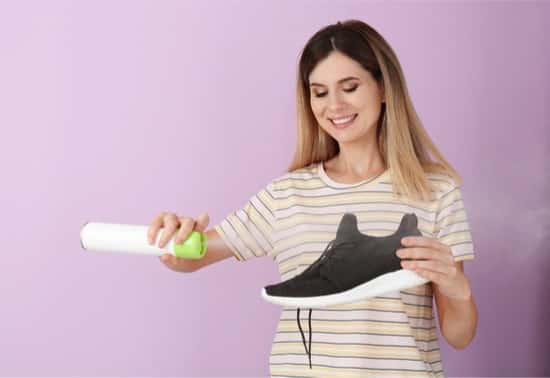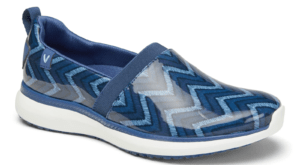If you work in the health care industry, you know that exposure to germs is an occupational hazard that is inevitable, and as a nurse, you need to manage it. During your shifts, your uniform and shoes collect a lot of bacteria that can remain on them for more than 48 hours.
According to research, there are some bacteria and microorganisms that may survive even after implementing some of the hospital cleaning measures, regulations, and sterilization techniques of trying to contain and kill infections. You will find most of the germs on the hospital floors, and because you spend most of your time on your feet, your nursing shoes carry most of the germs.
That is why it’s essential to learn how to disinfect nursing shoes so that you don’t carry to your home and spread the harmful germs and bacteria to your family and loved ones. As a nurse, you can walk for more than 3 miles in your 12-hour shift, and your shoes bear all the brunt. Taking care of your nursing shoes is important so that they can last longer and give you excellent service by supporting your feet as long as you need it.
The first step in self-care is taking care of your feet and back because the shoes you wear are as important as the amount of sleep you get. Wearing comfortable nursing shoes will allow you to power through your shifts, and they also need to be easy to clean and sterilize.
Nursing shoes may look similar to regular shoes, but they differ because they’re specifically made to cater to your everyday needs in the hospital. Here are some features you should consider in a good quality nursing shoe.
Features of a good nursing shoe

Different types of nursing shoes
Easy to clean
As a nurse, you have minimal time to clean your shoes every day. When you invest in nice shoes, you don’t know what will end up on your shoes at the end of your shift. And because you’re prone to accidental spills of blood and other liquids, your shoes must be liquid-resistant so that they can be easy to clean. Nursing shoes made of rubber are probably the easiest shoes to clean after your shift.
Lightweight
The nursing shoes you wear should be lightweight so that you don’t put too much strain on your feet during your ling and busy shifts. Depending on which station you work in, you might spend most of your shift hours lifting or supporting people and assisting them to get out of their beds. So you don’t need extra weight weighing you down. Get a pair of shoes that will give you a feeling like you’re walking on clouds rather than shoes that you will drug around in hallways. Sneakers tend to be the best option for most nurses because they’re lightweight, and wearing such light shoes it helps to prevent some of the health problems associated with fatigue and stress at work like muscle cramps and lower back pains.
Durability
Working as a nurse means that most of your time, you spend it on your feet and your shoes need to be made with durable and tough materials so that it can survive through your clinical duties. Leather is a tough and durable material that makes perfect nursing shoes.
Non-slip sole
More often than not, you will come across wet or slippery hospital floors, and if you’re not careful, you could accidentally slip when running or walking. That’s why you need to wear shoes that have a non-skid sole with excellent traction so that you don’t fall and hurt yourself when you’re on your way to assisting your patients.
Water-resistant upper
The nursing profession isn’t a very glamorous carrier. There will be lots of blood and other bodily fluids splashing around you all day, and if you didn’t carry an extra pair of shoes, you don’t want the only pair you’re wearing to be soaked in who-knows-what before you even finish your shift. A good pair of nursing shoes that are water-resistant would be your best option that is either made from leather or rubber, but be careful not to wear sneakers with a breathable upper mesh because it’s not waterproof.
Style of the shoes
Nursing shoes come in different shapes and styles, but two main styles include clogs and sneakers. The only difference is if they come with laces or not. Clogs are very easy to put on and take off, easy to clean, and you don’t have to worry about tying or tripping over laces. On the other hand, laces allow you to either tighten or loosen them to give your sneakers the perfect fit and help the shoes to conform to the shape of your feet. Sneakers are lighter than clogs, and it’s easier to move in them; however, the challenging thing about sneakers is it’s difficult to wipe and clean them than clogs. It all comes down to your preference. Clogs are more uniform-friendly while sneakers blend more with after work clothes.
Comfort and size
This is an essential feature to consider since you will be on your feet most of the time. When it comes to looking for comfortable shoes, you should first get the correct measurement of your feet, and the best time is after you’ve been walking all day. Remember that your feet can swell, so you need enough space in your shoes to keep you comfortable throughout your shift. If you don’t know how to measure your feet, you can ask your shoe attendant or a foot specialist to take your measurements.
Arch support
Everyone has a different arch size on their feet, and the shoes you wear can be specifically designed to either support a low arch or a high arch. If you’re flat-footed, it’s recommended that you get customized shoes with orthotic inserts to help support your arch. When you go to buy nursing shoes, you need to pay close attention so that you don’t get the wrong type of shoes. If you’re not sure about your arch shape, consult a foot specialist to give you the right arch shape for your feet, and to advise you on the best arch support you need to stay comforted.
Color choices
You might be working in a hospital with strict dressing code regulations, which includes a specific color of your shoes. However, if rules do not restrict you, you can get a shoe that reflects your personality or shoes that come in fun colors and patterns. Most of the nursing shoes solid black or white colors, but you can also find nursing clogs with interesting colors and floral designs, but just make sure they go with most of your scrubs.
How to disinfect nursing shoes
Disinfecting shoes using anti-fungus spray
Here are some easy methods you can use to properly disinfect your nursing shoes that will help to get rid of any germs and bacteria they might contain.
Start with your insoles.
This is the first step in learning how to disinfect nursing shoes the right way. The insoles in your shoes absorb a lot of perspiration and sooner or later start growing microbes that produce foul odor if they stay too long with sweat. To clean the insoles, mix warm water, and laundry detergent, then use a sponge to scrub off the dirt and any stains. Rinse the insole with some warm water and hang them outside to dry naturally. If after drying, they’re still smelly, place them in a plastic bag and pour in some baking soda, seal, and leave them overnight in the freezer. You could also soak them in a mixture of warm water and vinegar for about 3 hours, then wash them with detergent, and rinse to remove the smell.
Use a washing machine on machine washable shoes.
Most of the shoes you wear can be washed in a washing machine, but if your shoes are made with leather, suede, plastic, or other delicate material, don’t place them in a washing machine. First, remove the insoles and laces, then put each shoe in a pillowcase to avoid the shoes from banging and damaging your machine’s drum. Wash the shoes in temperatures of about 50 degrees to ensure that all the germs, bacteria, and smell are completely gone and, if necessary, rewash them in the same temperatures. Place the shoes, laces, and insoles in an airy place to dry, but not under strong direct sunlight or a heat source to avoid your shoes from getting damaged by excess heat, deformed, or cracking. Remember to remove all the mud you can from the shoes, wash the shoes in short cycles, and put in an old towel in the washing machine together with the shoes to avoid banging.
Use rubbing alcohol
If you want to get rid of foul smells and germs, using rubbing alcohol is a very effective solution to your problem. If your nursing shoes are sneakers or made with cloth, you can soak both the inside and outside in a large bowl with enough rubbing alcohol to kill all the germs. However, for shoes that are made with more sensitive material, use a rag to scrub them with rubbing alcohol gently. Place them outside where there is enough air circulation, but keep them away from direct sunlight or any strong heat sources to avoid damaging them.
Use a mixture of bleach and water.
Bleach is a powerful chemical that you can use for disinfecting your shoes. If your shoes are white, you will have no problem treating them with bleach, but if your shoes are non-white, you can use a mixture of water and bleach and put it in a spray bottle and carefully spray the shoes. But before you spray the shoes, test the spray on a small hidden part of your shoe to see if there is any discoloration or negative reaction so that you don’t damage your shoes with bleach.
Anti-bacterial spray
There are anti-bacterial sprays that you can use to keep your nursing shoes in clean and hygienic conditions. These special sprays kill all the microbes and fungus in your shoes, which cause bad odor and growth of harmful microorganisms that can cause athletes foot. Spray the insides of your shoes then allow them to dry before wearing them again completely.
Use steam
Using steam is a robust method of killing bacteria because of its high temperatures that will kill all odor-causing fungi and bacteria. There are special anti-bacterial steam cleaners in the market today that have been clinically proven to kill 99% of all bacteria. You can use your drier or washer if it has the steam function to destroy any bacteria or fungi in your shoes. You can also use the hand-held steam cleaning machine that is mostly used to remove wrinkles on clothes. However, you need to be careful if your shoes are made from suede or any other sensitive material as the high temperatures in the steam can damage the shoes.
How to deodorize your nursing shoes
Use vinegar
Vinegar is well known for its ability to remove strong odor from surfaces and things like your shoes. While washing your shoes with a mixture of soap and water, add a little amount of vinegar into the mixture. You can also put a bit of white vinegar on a rag and rub your shoes with it after washing them. This will eliminate any bad odor, and the smell of vinegar will fade after your shoes are dry.
Use baking soda
Another effective way of deodorizing your nursing shoes is by using baking soda. Although baking soda is not a sanitizer or a disinfectant, it’s very effective in killing germs and removing foul smells. Just pour 2-3 teaspoons of baking soda into each shoe then shake the shoes vigorously for a few minutes to ensure it reaches all the corners of your shoes. You can keep the shoes overnight with the baking soda to completely remove the smell then pour the excess baking soda in the morning.
Use drier sheets
Placing drier sheets inside your shoes can also be another way of eliminating odor from your shoes. Drier sheets produce a fresh scent, which leaves your shoes smelling great, and you can confidently wear your shoes again. You can use two drier sheets in each shoe and leave them in for a few days. Before you put on your shoes again, remove the drier sheets. This will help to improve the smell of your nursing shoes. Drier sheets can be used in all types of shoes, but they’re more effective in shoes that can’t soak in vinegar.
Use charcoal
This might not be an ideal solution for you, but charcoal is mostly used in air filters to absorb bad odors and smells in your home, and it has excellent deodorizing properties. Therefore, charcoal can also be great at removing bad smells from your nursing shoes. All you need to do is take old socks or a cloth bag and fill them with charcoal, then insert in each shoe and leave them overnight to absorb all the odor effectively.
If your shoes have a permanent stink in them, you should clean and disinfect your shoes regularly. Increasing this frequency will reduce the intensity of the smell and bring it down to a more manageable condition in a short time. However, if your shoes are still not clean and smelling fresh after such a thorough cleaning process, you should think about disposing them and getting new ones.
FAQ
How do you sterilize scrubs?
Soaking your new scrubs in a mixture of white distilled vinegar and cold water is an excellent way of pre-treating your scrubs. This will help to disinfect them and also ensure that they retain their color for a long time. However, don’t wash your scrubs with the rest of your clothes.
What some of the examples are of disinfects?
Some of the most commonly used disinfectants include hydrogen peroxide, iodine, and isopropyl alcohol. However, iodine is rarely used because of its strong smell and the fact that it stains surfaces and clothes.
Do crocs get smelly?
Although crocs are commonly made with an anti-microbial material that helps to fight odors, it doesn’t mean that the shoes won’t smell once in a while. When this happens, it’s time to use any of the deodorizing methods to remove bad odors.
Do nurses bring germs home?
Nurses are exposed to germs every day, and it’s an occupational hazard that they have to manage. According to studies, a nurse’s uniform can collect a huge amount of bacteria by the end of a nurse’s shift that they carry home.
How often should nurses replace shoes?
This may depend on the amount of time a nurse spends on her feet. If a nurse works an average of 40 hours a week, then she needs to replace her shoes at least twice a year.
Final thoughts
To increase the durability of your nursing shoes and to prevent harmful bacteria, fungi, microbes, and bad smells, you need to regularly clean and disinfect your shoes. Remember always to remove the insoles once you take off your shoes after your shift to allow them and the shoes to dry before you wear them again. The above simple methods on how to disinfect nursing shoes will help you in keeping your shoes hygienically clean.
 Nursing Trends
Nursing Trends


